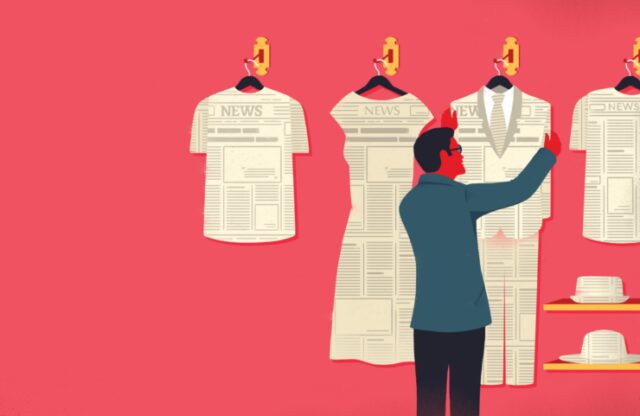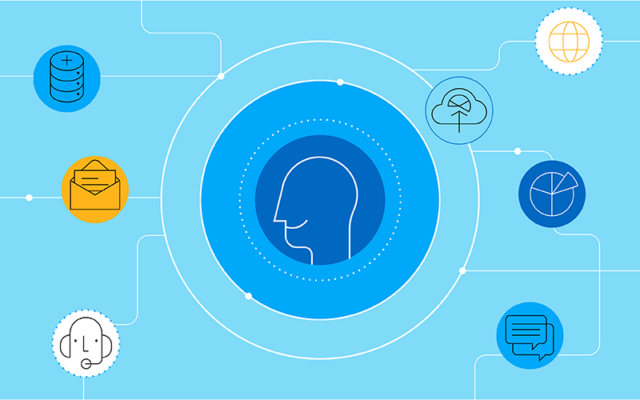
Personalization has become a buzzword in the business world today, and for a good reason. With the rise of big data and advanced analytics, companies now have access to an unprecedented amount of information about their customers.
This has allowed businesses to tailor their offerings to meet individual needs and preferences, improving the customer experience and driving growth. Personalization has become a key differentiator for many companies in today’s highly competitive business landscape, helping them to stand out and establish long-term customer relationships.
To be successful in this space, companies must understand the importance of personalization and how to effectively leverage it to meet customer needs. Ultimately, the use of personalization can improve customer satisfaction, increase loyalty, and ultimately drive business growth.
Benefits of Personalization

Personalization can lead to increased customer satisfaction and loyalty. When companies tailor their offerings to meet the unique needs and preferences of their customers, it creates a more personalized and relevant experience for the customer. This can lead to a stronger emotional connection with the brand and a higher level of satisfaction with their products or services. When customers feel understood and valued, they are more likely to become repeat customers and recommend the brand to others.
Personalization can also result in higher conversion rates and sales. By understanding the customer’s needs and preferences, companies can tailor their marketing and sales efforts to be more targeted and effective. This can lead to a higher likelihood of customers making a purchase or taking a desired action, such as signing up for a subscription or service. Personalization can also help to create a sense of urgency or exclusivity, which can drive sales and revenue for the business.
Personalization can enhance the overall customer experience and increase engagement. When customers feel that their needs and preferences are being met, they are more likely to engage with the brand and its offerings. This can lead to increased engagement on social media, website visits, and other forms of interaction with the brand. Personalization can also make the customer feel like they are part of a community or have a special connection with the brand, which can lead to a deeper level of engagement and loyalty over time.
Personalization Techniques

One of the most common ways companies personalize their offerings is by customizing products or services to meet individual needs. This can include offering different options or variations of a product based on a customer’s preferences, such as size, color, or features. Companies may also personalize services by offering different levels of support or additional features based on a customer’s needs.
The gaming industry, particularly the online gambling sector, has also leveraged personalization techniques through bonus programs and rewards. For instance, online casinos offer a variety of bonuses to atract and retain players, such as free spins, deposit bonuses, and loyalty rewards. Players can even use specific bonus codes to unlock exclusive bonuses and promotions, like the bonus from Slots Empire. These personalized incentives not only encourage customers to continue playing but also provide a more enjoyable and engaging gaming experience.
Personalized marketing and advertising involves tailoring messages and promotions to individual customers based on their interests and behaviors. This can include targeted ads, email campaigns, and social media posts that are specifically designed to appeal to a customer’s preferences. By creating a more personalized experience, companies can increase the effectiveness of their marketing efforts and build stronger connections with their audience.
Finally, companies may use dynamic pricing to personalize their offerings. This involves adjusting prices based on a customer’s behavior and preferences, such as offering discounts or promotions to customers who have previously shown interest in certain products or services. By tailoring prices to individual customers, companies can increase sales and build stronger relationships with their audience. However, it is important to ensure that this approach is transparent and fair to all customers.
Challenges of Personalization

One of the major challenges of personalization is the increasing concerns around data privacy and security. Collecting and using customer data to personalize offerings can raise concerns about how that data is being used and shared. Customers may not want their personal data to be collected or shared with other companies without their consent, which can lead to a loss of trust and ultimately impact customer retention.
Another challenge of personalization is finding the right balance between providing personalized experiences and respecting customer privacy and ethical considerations. Companies need to be transparent about the data they collect and how they use it, and give customers control over their data. Personalization strategies that cross ethical boundaries can damage a company’s reputation and lead to legal and financial consequences.
Personalization techniques require advanced technology and analytics to be effective. However, there are limitations to what these technologies can do, and they may not always be accurate in predicting customer behavior or preferences. In addition, personalization technology can be expensive to implement and maintain, making it challenging for small businesses to compete with larger companies that have more resources. Companies need to invest in the right technology and data analytics to ensure they can effectively personalize their offerings while staying within budget.
Key Takeaways
Personalization has become a powerful tool for businesses to meet individual needs, increase customer satisfaction and loyalty, and enhance the overall customer experience. By utilizing techniques such as customized product or service offerings, bonus programs and rewards, personalized marketing and advertising, and dynamic pricing, companies can provide tailored solutions that resonate with their customers.
However, personalization also presents challenges such as data privacy and security concerns, ethical considerations, and limitations of personalization technology and analytics. To maintain customer trust and loyalty, companies must adopt responsible and ethical personalization strategies that balance individual needs with privacy and security concerns.
Ultimately, the power of personalization lies in its ability to create a more personalized and satisfying customer experience, which can lead to higher conversion rates, sales, and overall business success.









